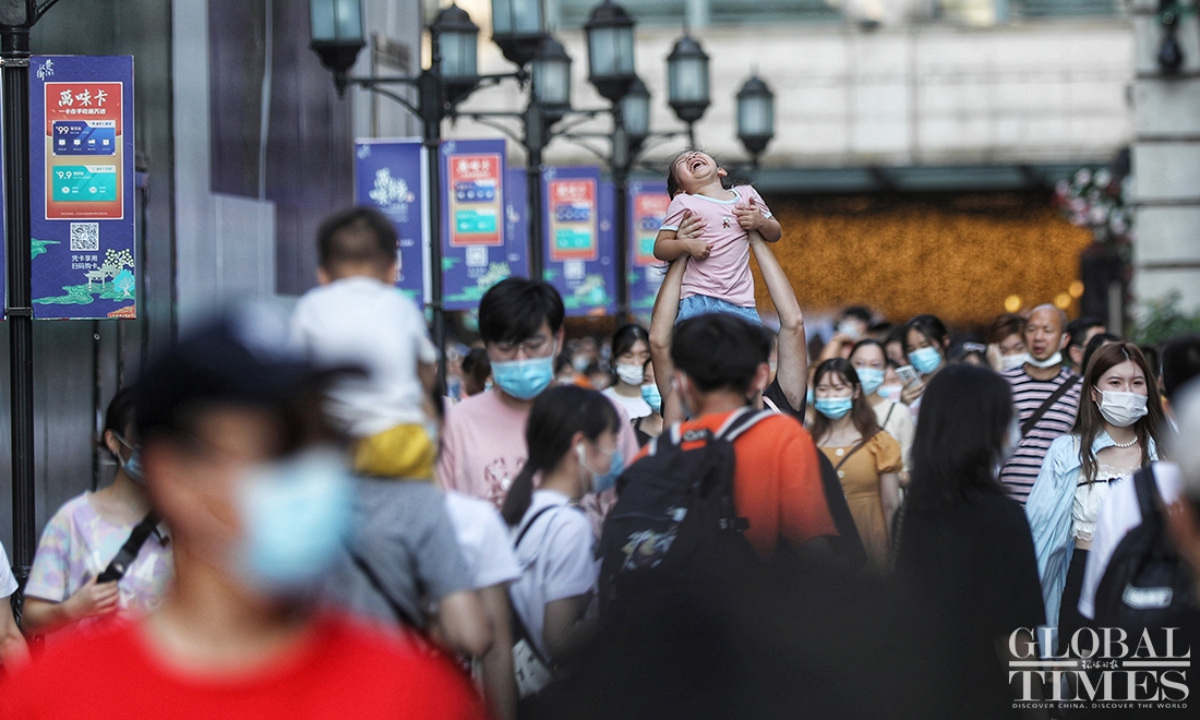
Wuhan reborn: Thanks to the steady progress made in containing the COVID-19 epidemic, life has fully returned to normal in Wuhan, the first city in China to be struck by COVID-19, Photo took on August 30, 2020 shows business streets are full of customers and residents enjoyed themselves in a variety of activities. Photo: Global Times
To effectively deal with the recent COVID-19 situation, China's National Health Commission announced on Monday that for people above 18 years old who have completed basic immunization, the interval between the first dose of booster immunizations will be shortened from previous six months to three months. And the domestic mRNA vaccine will be put into emergency use to enhance the immunization of adult people.
The Joint Prevention and Control Mechanism of the State Council issued the notice on Monday, stressing that the current focus of vaccination is to bridge the gap in immunization levels among different target groups to further reduce the risk of severe illnesses and deaths.
Those who have been infected and have not completed basic immunization can receive one dose three months after the infection.
At present, the overall epidemic situation in the country is sporadic, but the novel coronavirus has not disappeared and continues to spread, experts warned. The prevailing prediction is that there could be a new risk within six months, but the odds are that it will not turn into a big national wave as it did in December 2022.
The adjustment of the vaccine interval is more conducive to providing better protection for people with severe diseases and a high risk of death in subsequent outbreaks, Zhuang Shilihe, a Guangzhou-based medical expert, told the Global Times. The former policy was issued in 2020, and it is reasonable to make changes as the virus has changed over the years.
Besides, the protection of the vaccine may diminish over time. Given that the last outbreak in China began in December 2022, follow-up vaccination measures in April could help protect people better, Zhuang noted.
In addition, the protein subunit vaccine called SCTV01E vaccine developed by Sino Cell Tech and the mRNA vaccine of CSPC Pharmaceutical Group have been put into emergency use and can be used to enhance the immunization of adult people.
It is also sensible to include the mRNA vaccine as it has passed approval and legal procedures, Zhuang said.
The notice said that vaccines used for basic immunization of the uninfected target population shall be carried out in accordance with the previous requirements, and the SCTV01E vaccines and the mRNA vaccines are recommended as priorities for immunization strengthening.
People can also choose to use other recombinant protein vaccines or viral vector vaccines that were approved for conditional marketing or for emergency use for sequential booster immunization.


